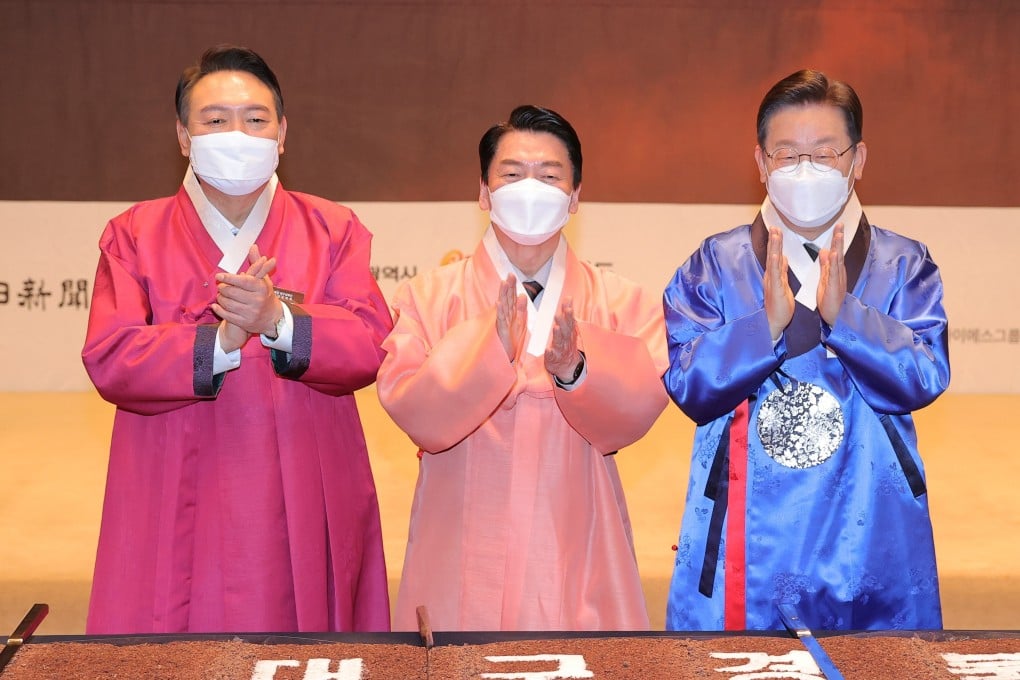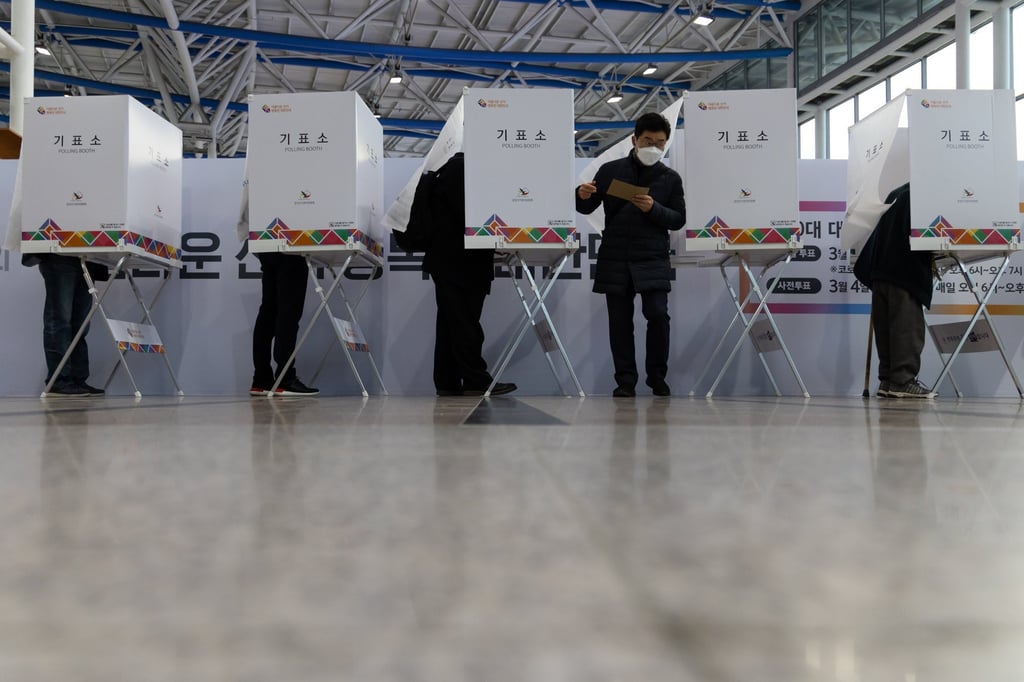Advertisement
Explainer | South Korea election: who’s running and where do they stand on North Korea, China and the US?
- Lee Jae-myung of the liberal Democratic Party of Korea and conservative People Power Party candidate Yoon Suk-yeol are locked in a tight race
- Winner of March 9 ballot could reshape Seoul’s US-China balancing act, amid escalating rivalry between Washington and Beijing
Reading Time:6 minutes
Why you can trust SCMP

Park Chan-kyongin Seoul
Voting plans in South Korea are being reworked ahead of Wednesday’s polls to elect the country’s all-powerful president for a five-year single term.
The revamp was needed after early voting was marred by long waits outside polling stations for coronavirus sufferers, while other voters received ballots already marked.
A record turnout of nearly 37 per cent in two-day absentee voting that ended on Saturday highlights a tight race in which Lee Jae-myung of the ruling Democratic Party faces off against Yoon Suk-yeol of the conservative main opposition People Power Party.
Advertisement
As daily COVID-19 infections hover near unprecedented levels above 200,000 and more than 1 million receive treatment at home, parliament passed a legislative amendment to ease in-person voting by such patients.

But chaos erupted at many polling places during Saturday’s special early voting for infected voters, prompting repeated apologies from the National Election Commission (NEC) for failing to ensure a stable and orderly process.
Advertisement
President Moon Jae-in asked the NEC for an explanation, and to guarantee all people’s right to vote, while opposition candidate Yoon’s campaign called for its chairwoman, Noh Jeong-hee, to step down.
Advertisement
Select Voice
Choose your listening speed
Get through articles 2x faster
1.25x
250 WPM
Slow
Average
Fast
1.25x